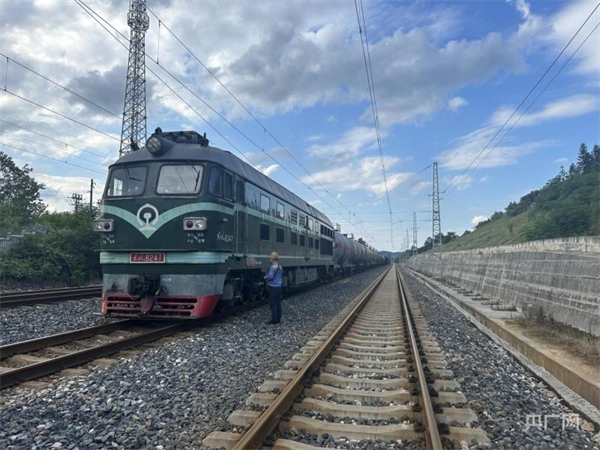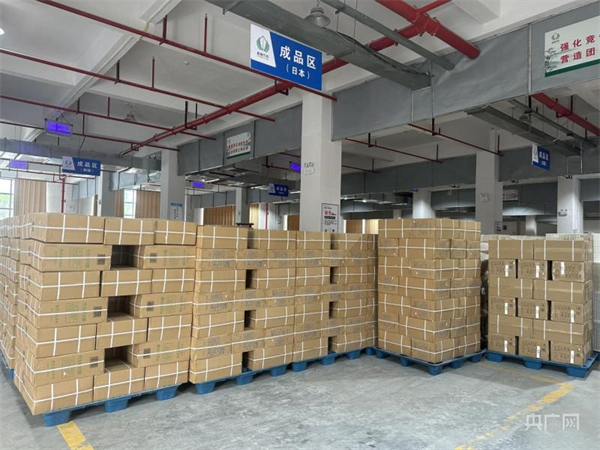A freight train loaded with Jingzhou-made bamboo tableware set off from Genshankou Railway Station in Jingzhou Miao and Dong Autonomous County, Huaihua recently. Based on the rail-sea intermodal transport service, the cargos will be transferred at Qinzhou Port in Guangxi Zhuang Autonomous Region for shipment, and delivered to Japanese client in 15 days.

A freight train to set off for the Beibu Gulf Port. (Photo/Hu Yinghui)
"We provide high quality goods with low prices and efficient transportation, which has earned us high reputation among overseas partners. Our international orders are scheduled for late October," said a manager of a bamboo production company in Jingzhou. This company mainly produces bamboo tableware, among which 90% are exported to Japan, South Korea, and EU. To solve the problems caused by time-consuming delivery and repeated loading and unloading processes of conventional transportation mode, Jingzhou government has taken the initiative to negotiate with the railway authority on freight charges and strengthen communication with marine logistics enterprises.
A hi-tech new materials company was introduced into Jingzhou this year. It is a supplier of Volve, BMW, and Daimler-Benz, and its products are mainly sold to Japan, South Korea, EU, and the U.S.A. Jingzhou government has helped the company communicate with the customs authority, and coordinated related parties, to facilitate "Hunan-made products going global".

Jingzhou-made bamboo tableware to be delivered to Japan. (Photo/Hu Yinghui)
Jingzhou is situated in remote mountainous area on the eastern edge of the Yunnan-Guizhou Plateau and at the southwestern end of Xuefeng Mountain. Poor transportation greatly limited local enterprises' development. In 2019, the National Development and Reform Commission issued an overall plan about the country's new western land-sea corridor. According to the plan, Huaihua has been designated as a hub city on the Chongqing-Huaihua-Liuzhou-Beibu Gulf main channel, while Jingzhou is a vital node on this route.
Since then, Jingzhou has taken the initiative to integrate into the development of the Huaihua International Land Port. It has given play to its geographical location advantages at the center of the boundary area of Hunan, Guangxi, and Guizhou, and the Jiaozuo-Liuzhou Railway running through it from north to south, to build itself into a key node on the outbound route from Huaihua to the Beibu Gulf.
As of the end of June, Jingzhou has delivered 318 TEUs of containers through the Huaihua International Land Port, 13.6% more than the set goal.
来源:enghunan.gov
编辑:谭婕倪